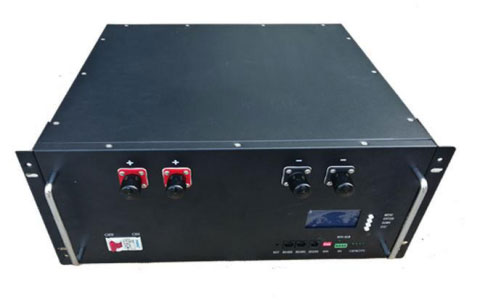24V On-board Battery Charger: Efficient and Reliable Solution for Your Power Needs
The demand for reliable and efficient battery chargers has increased significantly in recent years. With the rise of electric vehicles, renewable energy systems, and other battery-powered applications, it has become crucial to have a high-quality charger that can provide the necessary power while also being energy-efficient and cost-effective. One such solution that has gained popularity among users is the 24V on-board battery charger.
A 24V on-board battery charger is a device that is designed to charge 24-volt batteries while they are still in use. This type of charger is commonly used in vehicles, boats, and other mobile applications where a reliable power source is essential. The on-board feature ensures that the battery is always charged and ready to go, even when the device is not in use.
One of the most significant advantages of a 24V on-board battery charger is its efficiency. These chargers are designed to be energy-efficient, which means they use less power to charge the battery, resulting in lower electricity bills and reduced carbon footprint. Moreover, some of these chargers are equipped with advanced charging algorithms that can optimize the charging process, ensuring that the battery is charged quickly and efficiently.
Reliability is another essential factor that makes the 24V on-board battery charger a popular choice among users. These chargers are built to withstand harsh environments and extreme temperatures, making them suitable for use in both indoor and outdoor settings. Additionally, many on-board chargers come with built-in safety features such as overcharge protection, short-circuit protection, and reverse polarity protection, ensuring that the battery is not damaged during the charging process.
Another benefit of the 24V on-board battery charger is its versatility. These chargers can be used to charge a variety of 24-volt battery types, including lead-acid, lithium-ion, and nickel-cadmium batteries. This versatility makes these chargers ideal for use in a wide range of applications, from electric vehicles to renewable energy systems.

When it comes to choosing the right 24V on-board battery charger for your needs, there are several factors to consider. The first factor is the charging speed. If you need to charge your battery quickly, you should look for a charger with a higher amperage rating. The second factor is the type of battery you want to charge. Different batteries require different charging methods, so it\’s essential to choose a charger that is compatible with your battery type. Finally, you should consider the charger\’s safety features, as these can help prevent damage to your battery and ensure that the charging process is safe and reliable.
In conclusion, the 24V on-board battery charger is an efficient and reliable solution for your power needs. Whether you need to charge batteries for your electric vehicle or renewable energy system, these chargers are built to provide a safe and efficient charging experience. With their advanced features, versatility, and energy efficiency, 24V on-board battery chargers are an excellent investment for anyone who relies on batteries for their power needs.
-
 The cost of Lithium Iron Phosphate (LiFePO4) batteries is an important topic for anyone interested in this technology. As with most cleantech solutions, the price at which these batteries are available is a crucial factor in determining the market size and the feasibility of using the technology for various applications. This article discusses the average prices of LiFePO4 batteries and...Read more
The cost of Lithium Iron Phosphate (LiFePO4) batteries is an important topic for anyone interested in this technology. As with most cleantech solutions, the price at which these batteries are available is a crucial factor in determining the market size and the feasibility of using the technology for various applications. This article discusses the average prices of LiFePO4 batteries and...Read more -
 There has been a significant increase in the demand for portable electronic products such as smartphones, tablets, laptops, and wearable devices. These devices have become an integral part of our daily lives, providing us with convenience and connectivity on the go. One of the key components that enable these devices to function seamlessly is the lithium battery technology. Lithium...Read more
There has been a significant increase in the demand for portable electronic products such as smartphones, tablets, laptops, and wearable devices. These devices have become an integral part of our daily lives, providing us with convenience and connectivity on the go. One of the key components that enable these devices to function seamlessly is the lithium battery technology. Lithium...Read more -
 Introduction Lithium-ion batteries have become an essential source of power for many electronic devices. The demand for high-performance batteries has been increasing in recent years, especially in applications where safety, long life, and high reliability are critical. LiFePO4 batteries are one such solution that offers several advantages over other battery technologies. In this article, we will discuss the features...Read more
Introduction Lithium-ion batteries have become an essential source of power for many electronic devices. The demand for high-performance batteries has been increasing in recent years, especially in applications where safety, long life, and high reliability are critical. LiFePO4 batteries are one such solution that offers several advantages over other battery technologies. In this article, we will discuss the features...Read more -
 Lithium Iron Phosphate (LiFePO4) batteries are becoming increasingly popular due to their high energy density, long cycle life, and improved safety compared to other lithium-ion batteries. In this article, we will take a closer look at LiFePO4 batteries, their characteristics, advantages, and usage. Chemical Composition LiFePO4 batteries are made up of three main components: a cathode, an anode,...Read more
Lithium Iron Phosphate (LiFePO4) batteries are becoming increasingly popular due to their high energy density, long cycle life, and improved safety compared to other lithium-ion batteries. In this article, we will take a closer look at LiFePO4 batteries, their characteristics, advantages, and usage. Chemical Composition LiFePO4 batteries are made up of three main components: a cathode, an anode,...Read more -
 Introduction In recent years, the demand for energy-efficient solutions has been on the rise due to the increasing concerns about environmental sustainability and the need for cost-effective energy sources. One promising technology that has gained attention is the use of lithium batteries, particularly the 100Ah Lithium Iron Phosphate (LiFePO4) battery. This article aims to explore the potential of this...Read more
Introduction In recent years, the demand for energy-efficient solutions has been on the rise due to the increasing concerns about environmental sustainability and the need for cost-effective energy sources. One promising technology that has gained attention is the use of lithium batteries, particularly the 100Ah Lithium Iron Phosphate (LiFePO4) battery. This article aims to explore the potential of this...Read more -
 When it comes to finding the right U series supplier for your industrial needs, there are several factors to consider. The U series refers to a range of bearings manufactured by various companies that are commonly used in industrial applications, including heavy machinery, automotive, and aerospace industries. Here are some key factors to consider when selecting a U series supplier...Read more
When it comes to finding the right U series supplier for your industrial needs, there are several factors to consider. The U series refers to a range of bearings manufactured by various companies that are commonly used in industrial applications, including heavy machinery, automotive, and aerospace industries. Here are some key factors to consider when selecting a U series supplier...Read more -
 Introduction Batteries play an essential role in today\'s world, powering everything from mobile phones to electric cars. Two types of batteries that have gained popularity in recent years are LiFePO4 and lithium-ion batteries. While both batteries are lithium-based, they differ in their composition and performance. In this article, we will compare LiFePO4 vs lithium-ion batteries and determine which one...Read more
Introduction Batteries play an essential role in today\'s world, powering everything from mobile phones to electric cars. Two types of batteries that have gained popularity in recent years are LiFePO4 and lithium-ion batteries. While both batteries are lithium-based, they differ in their composition and performance. In this article, we will compare LiFePO4 vs lithium-ion batteries and determine which one...Read more

